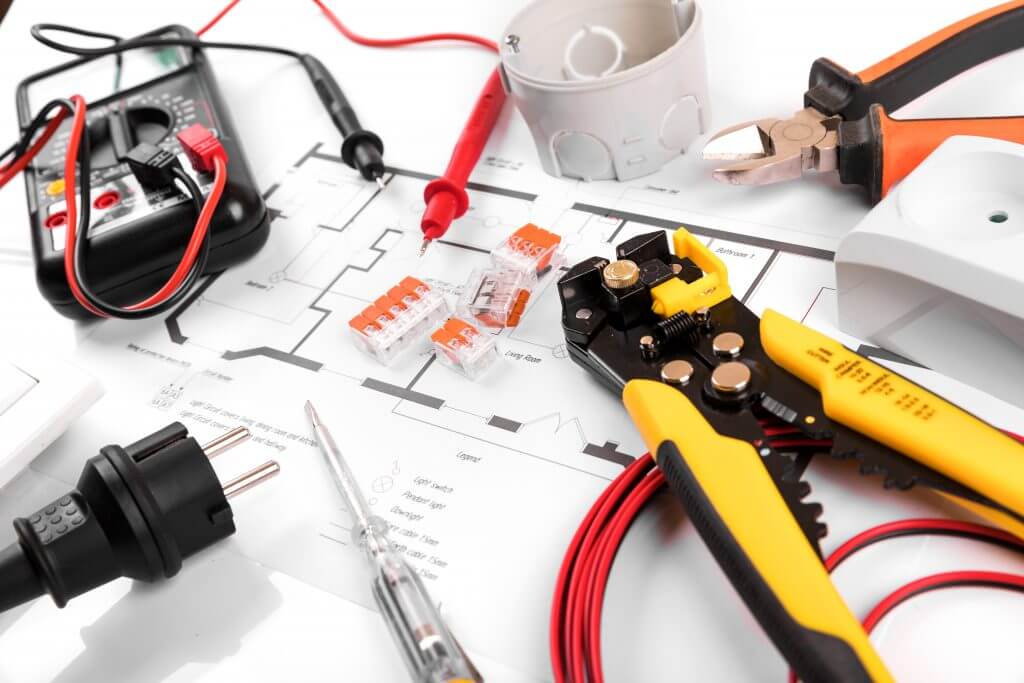Electricians are crucial in ensuring safe and efficient appliance installations and wiring. From understanding the technical requirements of modern appliances to managing complex electrical systems, their work ensures functionality, safety, and compliance with local codes. Improper installation or wiring can lead to electrical hazards, reduced appliance efficiency, and potential property damage. We will explore how Reliant Electric electricians assist with appliance installations, from assessing electrical needs to upgrading systems and providing ongoing maintenance. Ezclasswork will highlight their importance in creating reliable, long-lasting electrical systems for residential and commercial spaces.
Assessing Electrical Needs Before Installation
Before installing any appliance, assessing the electrical system’s capacity and compatibility with the new device is vital. Electricians evaluate your home’s wiring, breaker panels, and circuits to determine whether they meet the appliance’s power requirements. For example, high-energy appliances like ovens, air conditioners, and water heaters often demand dedicated circuits and higher voltage, which may not be standard in older homes.
An electrician ensures the correct wiring and circuit breakers are in place to handle the appliance’s load. They also check for issues such as outdated wiring, insufficient outlets, or overloaded circuits. Identifying and addressing these problems beforehand prevents future malfunctions, overheating, or short circuits. Electricians also help homeowners understand their appliances’ power requirements, ensuring they do not exceed the system’s capacity. This assessment phase is essential for safety, energy efficiency, and the longevity of your electrical system.
Upgrading Electrical Systems for Modern Appliances
As technology advances, modern appliances often require more sophisticated electrical systems than those in older homes. Electricians can upgrade wiring, outlets, and breaker panels to accommodate the specific needs of contemporary devices. This process may involve replacing aluminum wiring with safer copper alternatives, installing ground fault circuit interrupters (GFCIs) for water-prone areas, or adding dedicated circuits for high-demand appliances.
Upgrading the system enhances the appliance’s safety and functionality and ensures compliance with local electrical codes. An outdated system can pose significant risks, including electrical fires or appliance failure. Electricians use their knowledge of current standards to install equipment that meets safety and performance requirements. They also work with homeowners to future-proof their systems, considering potential upgrades or additions. This proactive approach minimizes disruptions and expenses in the long term, allowing for seamless appliance integration as technology evolves.
Installing Appliances with Precision and Safety
Electricians handle the intricate appliance installation process, ensuring precise and safe connections. This involves more than simply plugging in a device; it requires a thorough understanding of electrical schematics, grounding, and voltage requirements. For example, installing a new dishwasher might involve hardwiring the appliance into the system and connecting water lines, which must be done without compromising the electrical wiring.
During installation, electricians focus on secure connections to avoid loose wires or improper grounding that could lead to electrical shocks or appliance damage. They also test the system to ensure it operates correctly and efficiently, addressing issues like power fluctuations or uneven voltage. Their meticulous approach ensures the appliance performs optimally, reducing the likelihood of future repairs or inefficiencies. Proper installation enhances energy conservation, as poorly installed appliances may draw excess power or fail to function at their intended capacity.
Troubleshooting and Fixing Wiring Issues
Electricians are often called upon to address wiring issues that interfere with appliance installation. Faulty wiring, damaged circuits, or improper connections can prevent an appliance from functioning correctly or create safety hazards. Electricians identify the root cause of these problems and implement solutions to restore the system’s integrity.
For example, if an outlet lacks sufficient voltage to power an appliance, the electrician may upgrade the wiring or replace the circuit breaker. Similarly, they address common issues like tripped breakers, flickering lights, or burned-out outlets, which can signal underlying problems in the electrical system. Their ability to diagnose and repair these issues quickly ensures that appliances can be installed and used safely. This troubleshooting process also helps homeowners avoid costly repairs by addressing problems early protecting the appliance and the electrical infrastructure.
Ensuring Compliance with Electrical Codes
One of the most important aspects of appliance installation and wiring is ensuring compliance with local electrical codes and standards. These regulations protect property and lives by enforcing safety and performance measures. Electricians are well-versed in these codes and ensure that all installations meet the requirements.
Compliance is especially important for major appliances like stoves, HVAC systems, and washers, which often require dedicated circuits and specific outlet configurations. Electricians inspect and adjust or upgrade the existing system to align with regulatory standards. They also provide documentation or certification for completed work, which can be crucial for insurance or property resale. Adhering to these codes reduces the risk of electrical hazards, improves the lifespan of appliances, and ensures that the electrical system remains legally compliant.
Electricians play a vital role in appliance installations and wiring, ensuring safety, functionality, and efficiency at every stage. Their work is essential for modern living, from assessing electrical needs and upgrading systems to handling precise installations and ongoing maintenance. We have explored how electricians help address the challenges of integrating appliances into existing electrical systems, offering solutions that protect both the appliances and the property. By relying on their expertise, homeowners can enjoy peace of mind knowing their electrical systems are optimized for performance, safety, and compliance with local regulations. Their role remains indispensable in creating reliable and future-ready electrical solutions.
